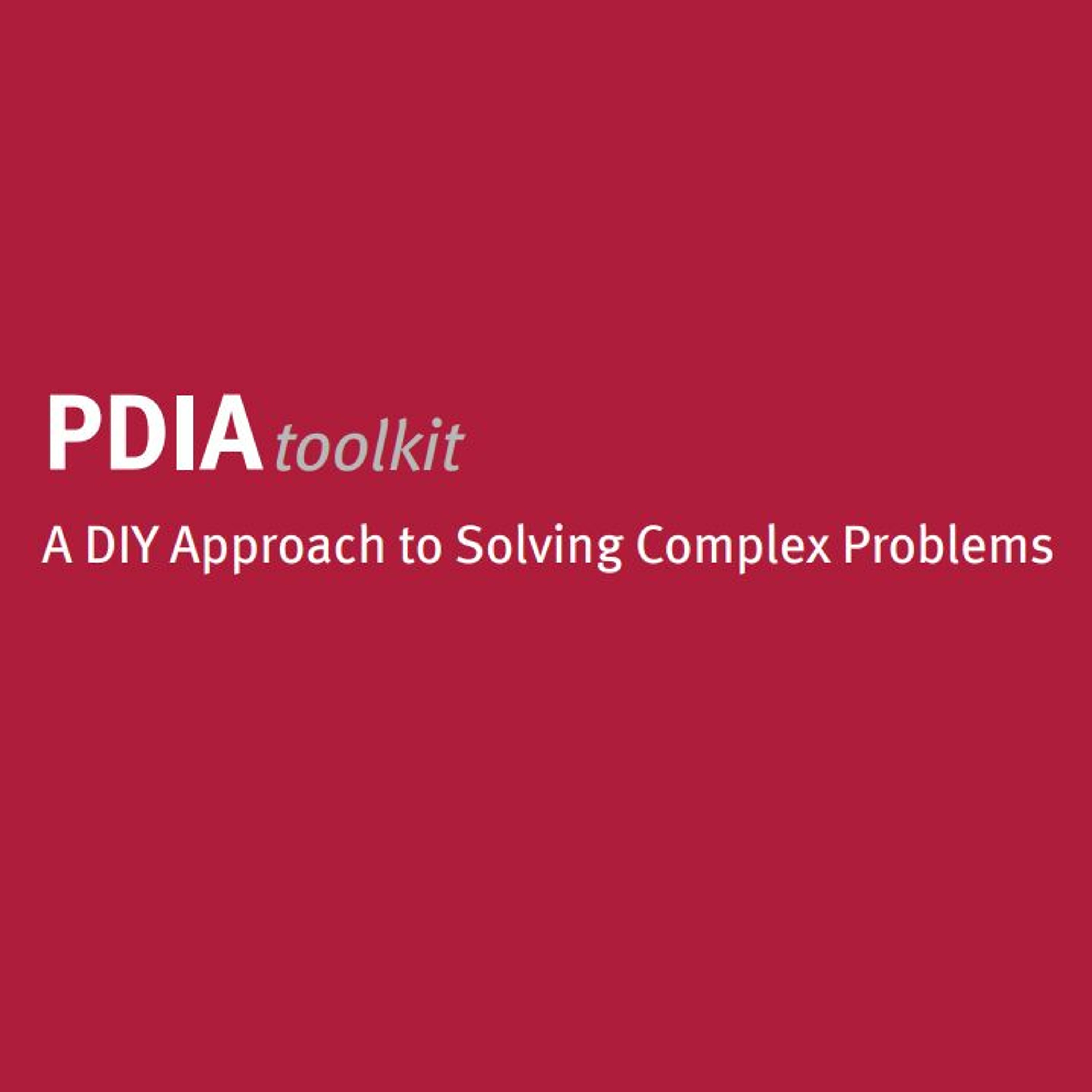PDIAtoolkit: A DIY Approach to Solving Complex Problems

On this week\u2019s podcast, Salimah Samji, Director of the Building State Capability program at CID and Tim McNaught, Building State Capability Fellow, have a conversation about the recently launched PDIAtoolkit. \n\n// download the PDIAToolkit at www.bsc.cid.harvard.edu //\nInterview recorded on October 24, 2018.\n\nAbout the PDIAtoolkit: The PDIAtoolkit is designed to guide you through the process of solving complex problems which requires working in teams. We call it a Do-it-Yourself (DIY) kit, where the \u2018you\u2019 is a committed team of 4-6 people mobilized to work together to solve a complex problem that cannot be solved by one person.\n\nProblem Driven Iterative Adaptation (PDIA), is a step-by-step approach which helps you break down your problems into its root causes, identify entry points, search for possible solutions, take action, reflect upon what you have learned, adapt and then act again. It is a dynamic process with tight feedback loops that allows you to build your own solution to your problem that fits your local context.\n\nThe PDIAtoolkit draws from two key resources. The first is the Building State Capability: Evidence, Analysis, Action book which is available as a free download and the second is a set of short videos explaining the key concepts of PDIA.\n\nWhile the PDIA process is not linear, we recommend that you first read this toolkit in sequence to understand the steps. The toolkit has eight sections. Each section introduces a new concept and has one or more worksheets which are the tools to help you try PDIA for yourself. All the tools are dynamic and should be reviewed and adapted on a regular basis.\n\nWe hope that you find this toolkit useful and wish you the best on your PDIA Journey.\n\nThis is an open access publication, available online and distributed under the terms of a Creative Commons Attribution \u2013Non Commercial \u2013No Derivatives 4.0 International license (CC BY-NC-ND 4.0).